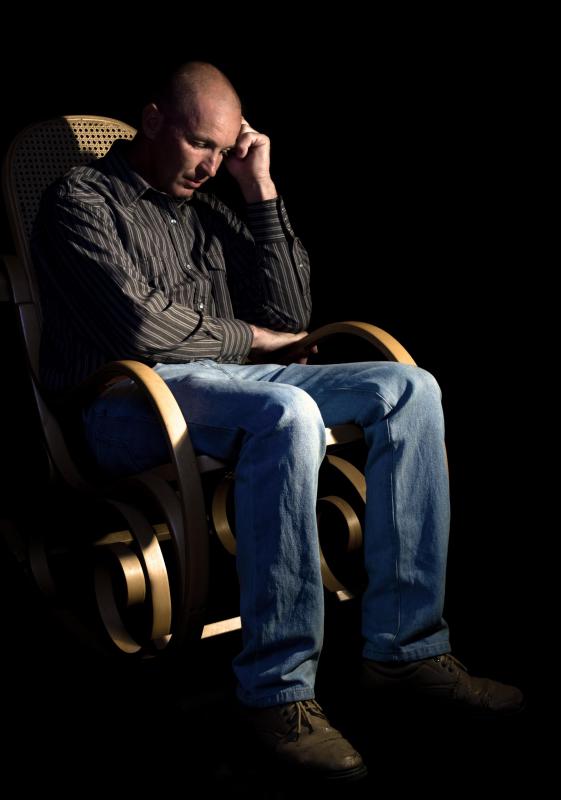At TheHealthBoard, we're committed to delivering accurate, trustworthy information. Our expert-authored content is rigorously fact-checked and sourced from credible authorities. Discover how we uphold the highest standards in providing you with reliable knowledge.
What Is Existential Depression?
Existential depression occurs when a person questions the purpose of his or her life. It usually stems from having an existential crisis, in which he or she develops a new-found appreciation of mortality. Marriage, death, and break-ups are common causes of existential depression. Both children and adults alike are capable of developing existential depression, but the problem is more likely to occur in especially intelligent individuals. Therapy usually involves directing a patient’s attention to another worthy focus, like his or her friends, family, or other hobbies.
This kind of depression is prompted by the realization that a person supposedly has little meaning overall. A person might realize that he or she will not be alive for very long, nor will the world be significantly impacted in the long-term by his or her presence and passing. Someone suffering from existential depression might also marvel at how fragile life is and how easily and suddenly death comes.

Almost any experience, whether pleasurable or painful, can be a cause of this kind of depression. A person may begin to wonder whether his or her life had meaning before a pleasant experience, such as marriage or having kids. On the other hand, someone who has a negative experience, like a breakup or the death of a loved one, may wonder if his or her life still has meaning. In addition, sometimes reaching a certain age a person considers significant might trigger a crisis because of failed accomplishments and the prospect of being closer to death.

Existential depression is often seen in gifted children and adults of higher intelligence in general. Children who are deemed gifted are considered more susceptible to experiencing existential depression. Their higher than average intelligence allows them to view the world in ways their peers do not. One way of dealing with this is touch therapy, wherein a parent is instructed to hug or high-five the child more often to break through the sense of isolation.

There is no "best" approach to managing existential depression. Many methods involve distracting a patient with other things of importance, like family. Some people find relief in focusing on their physical appearance, wealth, or religion. Occasionally, therapy is not necessary; for example, it is normal for a teenager to go through an existential crisis, but he or she is usually quick to find meaning in friends, school, or hobbies. Still, it is safest to contact a mental health professional to evaluate the situation.
AS FEATURED ON:
AS FEATURED ON:















Discussion Comments
I think religion and faith can be a very beneficial tool when it comes to dealing with existential depression.
Unfortunately, some questions just don't have an answer and thinking about them constantly just makes things worse. That's what happened to me. The more I tried to figure out why I exist, the more depressed I became. I think existential depression is scary because there can be a very strong temptation to experience death. I think suicidal tendencies can be high with this type of depression.
I also had suicidal thoughts when I was depressed. The only thing that pulled me out of it was religion. I read a lot of religious books around this time. Religions preach that everything happens for a reason. Religion expects the believer to put faith in a supreme being and feel satisfied with destiny.
Religious belief is comforting. It helps us let go and just let things be and I think that this is the best treatment for existential depression.
"... but the problem is more likely to occur in especially intelligent individuals." I have never heard anyone say this about existential depression before. It never occurred to me that it's a sign of intelligence. That's kind of cool.
I think many of us experience temporary existential depression during our teenage and young adult years. I went through this phase in high school and college when I seriously questioned my existence and felt very depressed about it. But as I got older, my outlook changed and I stopped questioning things as I used to.
I think it's normal to experience this. Especially when we're young, we're still trying to find our place in the world and we don't know what we're going to do with our life. Some of us grow up with problems at home and school and that can be depressing because it feels like nothing will ever change. But it does change, it gets better with time.
So if anyone is going through this now, just remember that it's temporary. It might not seem that way now, but there is light at the end of the tunnel!
Post your comments